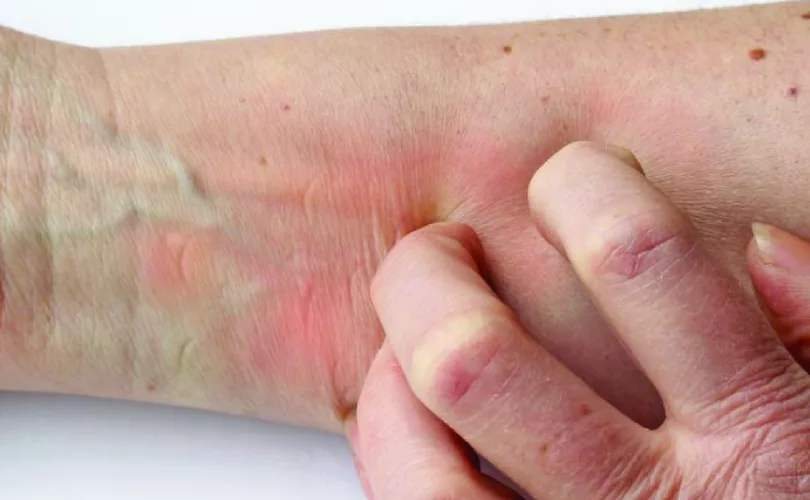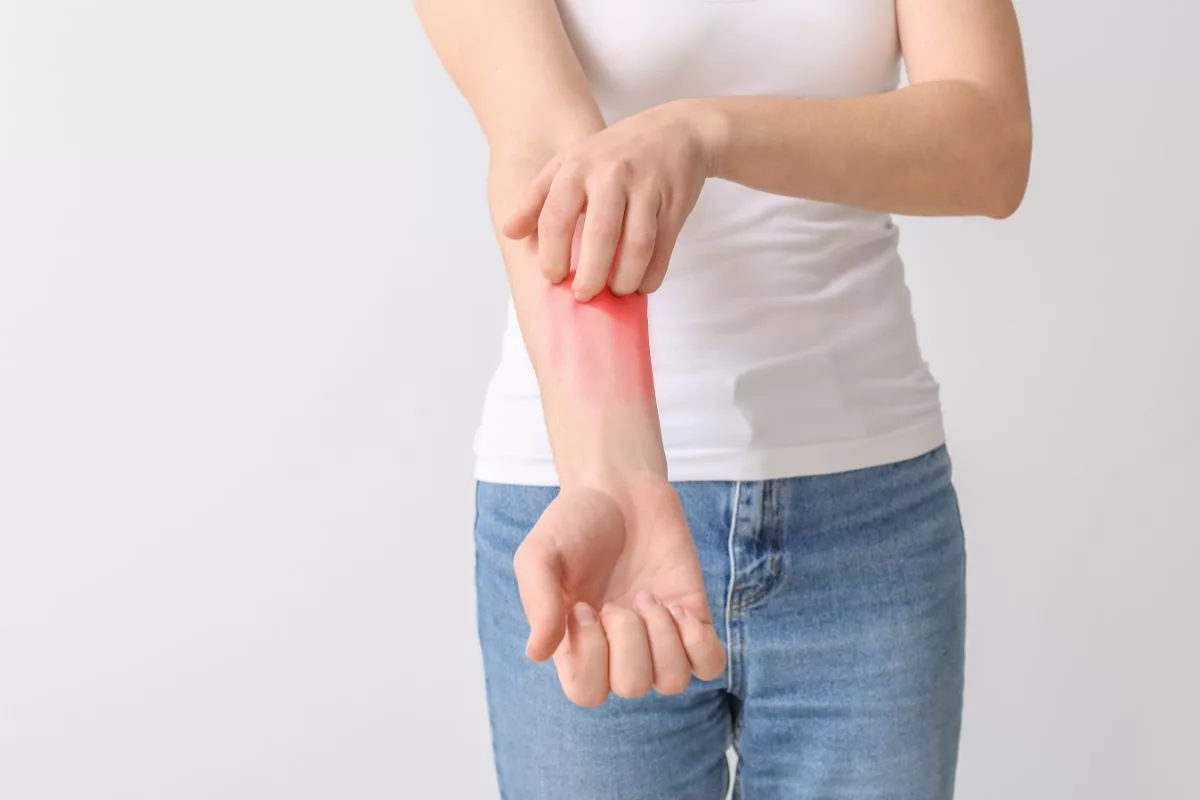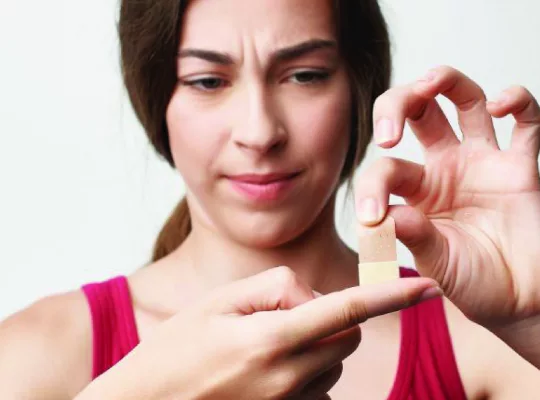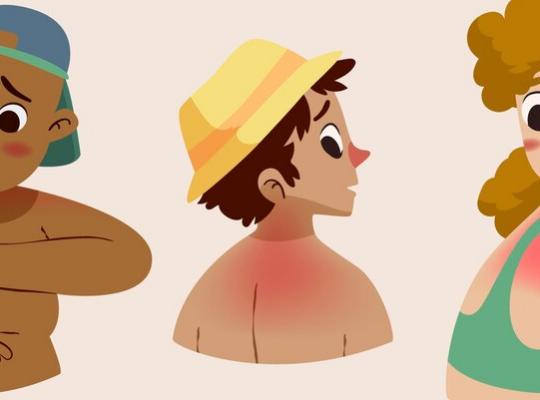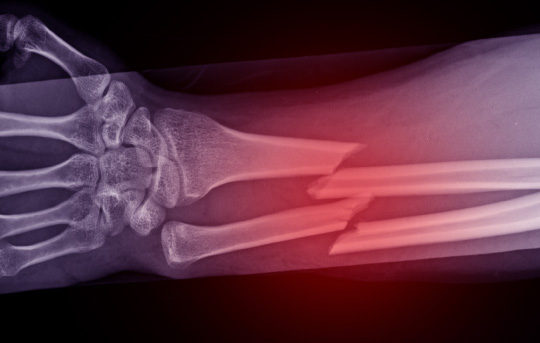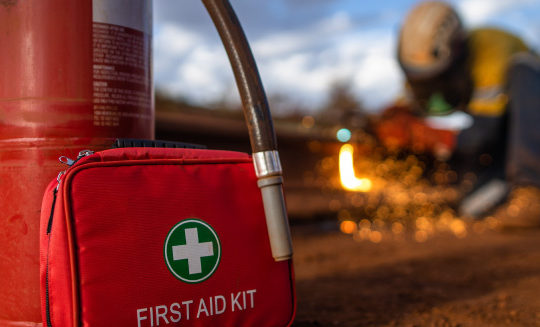If you have a condition of itchy red skin, and it’s new to you, you may be wondering what it could be. And the truth is, there are a number of different things it could be.
This article is going to walk you through some of the main conditions that can result in itchy red skin, and advise you on what to do if you can’t tell what the cause may be.
Dry Skin
Itchy skin, also known as pruritus, is often due to the skin simply being too drying. And this symptom is perhaps the easiest one to eliminate in deducing the cause.
Dry skin can be recognized by flaking of the skin, however, dry skin rarely gets bad enough to start flaking, so for this reason, we recommend trying a good moisturizer to see if this alleviates the itching.
Acne
Although acne doesn’t usually itch, you may find that your acne can start to itch during the healing process.
Depending on what treatment you’re using on your spots, the skin around the blemishes will typically start to dry out, and this can result in itching.
If you feel that this describes your condition, then we advise against picking at the area as best you can, since this may lead to scarring.
Rashes
A simple rash is commonly referred to as dermatitis. It is characterized by inflammation or irritation of the skin. A rash may appear red, warm, itchy, scaly, bumpy or swollen.
Rashes are typically allergic reactions to something that you have been in close contact with.
In order to determine whether your skin is red and itchy because of an allergic reaction, consider what products you have been using on your skin.
If you have been using new products, then you may be allergic to one of the ingredients in the product.
Similarly, it often happens that people get a rash as an allergic reaction to their laundry detergent.
In order to eliminate this as a potential cause of your red, itchy skin, consider switching over to a non-bio laundry detergent.
Eczema
Eczema, also known as atopic dermatitis, is characterized by dry, itchy skin that becomes red, thick, crusty, and scaly, and can weep clear fluid when scratched.
It’s a very common condition, and it most frequently appears in creases of the skin. It affects both children and adults, and is usually a long-term condition that does not go away quickly, even with treatment.
Eczema is not a nice condition, and it can often be worsened by other factors, since people with eczema also may be particularly susceptible to bacterial, viral, and fungal skin infections.
If applying a moisturizer to the area does not alleviate your itching and soreness, then it may be worth trying an eczema specific treatment.
There are many over the counter creams available specifically designed to alleviate itchy, inflamed skin.
There are several different types of eczema, and which treatment to use will depend on which type of eczema you have.
You will usually have to apply a lotion or cream to the affected area, and you may have to use a soap substitute for washing.
If you decide to try out an eczema cream, but still don’t see much improvement, then it may be something other than eczema.
Psoriasis
Psoriasis is a skin disease that causes a rash with itchy, scaly patches. It’s often characterized by thick red patches that are dry and cracked and can bleed when scratched.
Psoriasis feels dry to the touch, and the patches will be silvery and flaky.
These psoriasis plaques are most frequently found on the scalp, elbows, and knees, but it can develop anywhere on the body – even on eyelids.
Psoriasis occurs when skin cells are replaced more quickly than usual and are pushed to the surface, resulting in red, inflamed areas of skin. It’s thought to be caused by a problem with the immune system.
There are several known potential triggers that can spark off this reaction and cause a flare-up, including the likes of stress, alcohol consumption, injury, certain medications, or an infection.
If you suspect that your condition is psoriasis, then try to identify what may be triggering the flare-ups, so you can avoid them in the future.
Rosacea
Rosacea is a common condition that is often mistaken for acne, since it appears as redness of the face, and is often accompanied by pimples and pustules.
The way to distinguish rosacea from acne is that rosacea does not bring about whiteheads or blackheads, and it is itchy. And it can flare up even more with exposure to sunlight.
Rosacea is thought to be due to abnormalities in blood vessels that result in the redness of the face.
As the condition progresses, your face may become blotchy, or you could start to see “spider veins” where the blood vessels in your face become swollen and more visible.
There are creams available in prescription to reduce the redness of rosacea, and in this instance the use of moisturizers can help to reduce the itching.
What To Do If You Can’t Tell What The Cause Is
We always recommend seeing a health professional when you don’t know what’s wrong with you. Failing that opportunity, however, you could always use an online symptom checker.
Symptom checkers are not ideal, however, and we would suggest seeing a qualified health professional if you are able to.
Or you could approach a health professional with the results of an online medical symptom checker, so that the said professional has a good starting point to help determine the nature of your condition, and of course, what should be done about it.
Wrap Up
So, as you can see, there are a range of conditions that can result in red, itchy skin. And this is just a brief summary and not an exhaustive list.
If you have read through the different causes of red, itchy skin described in this article, and you still feel that your condition is not described here, then you may benefit from seeing a health professional, or at the very least going through your symptoms on an online symptom checker.
If the itchiness fades over a short period of time, that’s great, but if you continue to get no relief for two weeks or more, then medical help should be sought.
This is even more important when the itchiness is in a part of your body that you cannot see. If you can’t see the area concerned, then an online symptom checker will be of little use.

